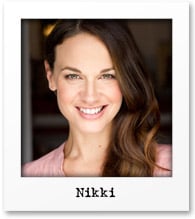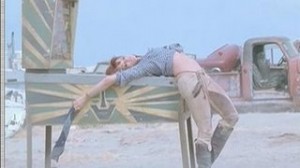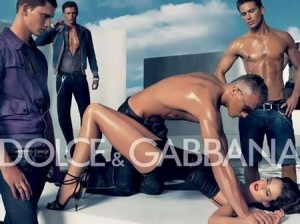I’m a proud feminist. And I’m the CEO of Australia’s largest provider of in-school workshops for teen girls that help develop self-worth and resilience. And I promote self-defence classes to young women.
Here’s how, and here’s why.
The uncomfortable truth? Teen girls are likely to experience violence in their lifetime; this can occur in a wide range of contexts ranging from schoolyard bullying and peer based aggression, through to street based harassment and stranger intimidation, through to physical assault and sexual violence.
And while we all agree this is a situation that needs to be urgently addressed, where feminists disagree is on the kind of advice, if any, which should be given to girls given this reality.
Some argue passionately that any attempt to modify young women’s behaviours is in effect victim blaming, and that the onus on change must always be placed squarely and solely at the feet of those who would harm.
I agree that often the dialogue on what women should do to stay safe, particularly after high profile media reporting on the death of a woman, can become (sometimes unintentionally) focused on what women wear, where they choose to go, whether they chose to drink alcohol. It focuses on limiting women’s freedoms.
This is never helpful. This is never OK. And it tends to assume that men who would harm are strangers lurking in dark alleys, waiting for their next vulnerable victim. As the statistics on domestic violence here in Australia clearly show, this is not always the case.
However, if self-defence is framed within a context of unpacking victim blaming and emphasising why violence is always the fault and responsibility of the perpetrator, and never the fault or responsibility of the victim or survivor, it can do much to shift this type of thinking. In fact, at the end of our sessions, many girls have approached us to explain how for the first time they felt understood; “I’ve always felt like maybe I must have somehow been to blame for my boyfriend hurting me like that. I now know that it had nothing to do with me …”
Importantly too, there must be an emphasis on the fact that we must also never blame a victim who doesn’t (for whatever reason) act assertively or fight back when in a threatening situation. Any of us, even trained professionals in the army or police force, can freeze in the face of danger. By explaining the body’s instinctive fight, flight or freeze survival mechanism, again much can be done to alleviate victim blaming and shaming.
In this age of body-image angst, self-defence classes also challenge the myth that women’s bodies are merely ornamental. Girls can be fast, strong and powerful; they can set physical boundaries. They can take up more space.
And girls can learn how and when to set verbal boundaries: “Stop! I don’t like it!”. Self-defence classes encourage girls to find their voices which is in contrast to the passivity-push that would have us believe girls should be sugar, spice and all things nice; seen and not heard.
In addition, girls are encouraged to shout-out not just for themselves but for others too; we also teach ethical bystander behaviour. There is great strength in connecting girls to each other and in fostering a sense of sisterhood.
And let me tell you, girls love all of this. Our self-defence workshop would be one of the ones girls rave about the most in their evaluations of our work. There is always laughter, giggling and a real delight in feeling powerful rather than powerless.
Finally, there is plenty of evidence to show self-defence classes can be useful in certain contexts. After news of an English women who had been trained in martial arts beating her sex-attacker unconscious broke recently, journalist Rhiannon Lucy Cossett argued that it was her own knowledge of self-defence that had saved her in an attack too; “After fighting off my attacker … (I kicked, scratched, punched, wrestled him to the ground, and told him he was a motherf****r) … I am baffled as to why self-defence has become so apparently outmoded, because it helped me when I needed it most. I grew up with a mother who used to run workshops for women who were victims of domestic violence in South London. It was she who taught me to face my attacker kicking and screaming, and in doing so she saved my life.
“That’s not to say that I might not have frozen … you cannot predict how any human will react, and I speak only for myself — but I am baffled that it is not taught more in schools. Why not have kickboxing and martial arts in PE lessons? Ultimately, extra-curricular karate lessons proved more useful to me than netball ever did.”
And what do the schools we have worked with say?
I have had emails from three different school principals in the years since we have been running these courses thanking us for giving their students the information they needed when they were in a potentially dangerous situation. On all three occasions their girls had been harassed on trains and knew to follow their instincts, move away quickly and to let other adults around them know they were feeling unsafe. Importantly, they also knew it was not their fault that they had been targeted: “They felt angry rather than ashamed which is just as it should be.”
And I have had many, many messages from teen girls that have told me that they suspect knowing that it is OK to set boundaries (and how to do this assertively) has kept them safe in a myriad of different situations. Everything from being bullied in the playground by other students, to being cornered at a party by a guy they trusted who tried to coerce them into sex.
Doctors Jill Cermele and Martha McCaughey, women’s self-defence advocates and founders of site “See Jane Fight Back!” also argue: “Self-defence challenges the belief that rape is thwarted only by the perpetrator “coming to his senses”, through bystander interference, or divine intervention. “Yep. In a perfect world? It would not be necessary to focus on how women and girls can learn assertiveness and self-defence skills. But we do not yet live in that world.
And while the vital work to help curb violence continues, so too should the programs for girls and women that provide options and strategies for keeping safe.
Knowledge is power. And I choose to pass power on.
This post originally appeared in News Corp’s popular online opinion site RendezView.




